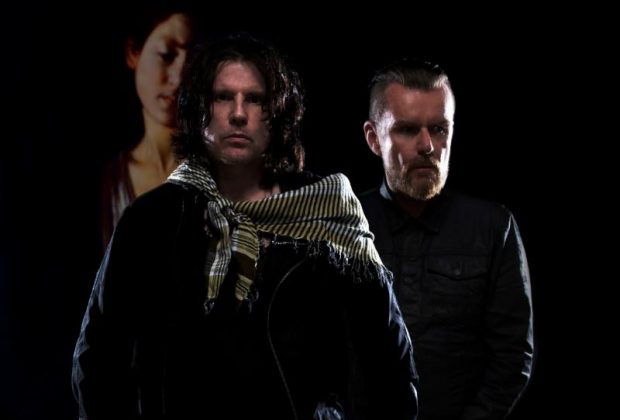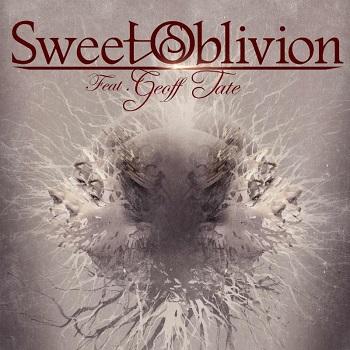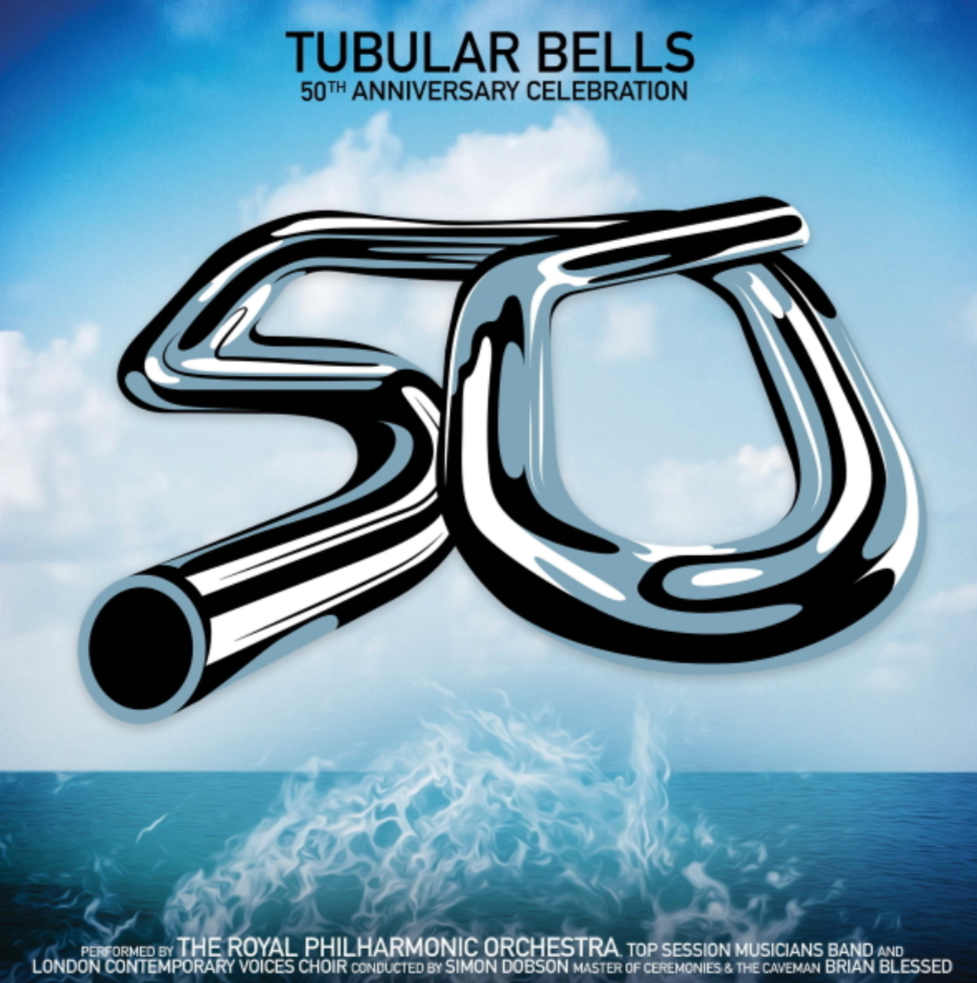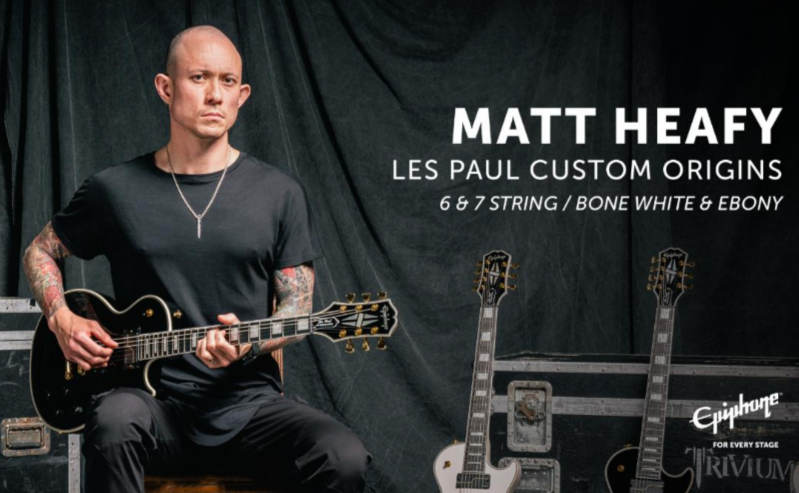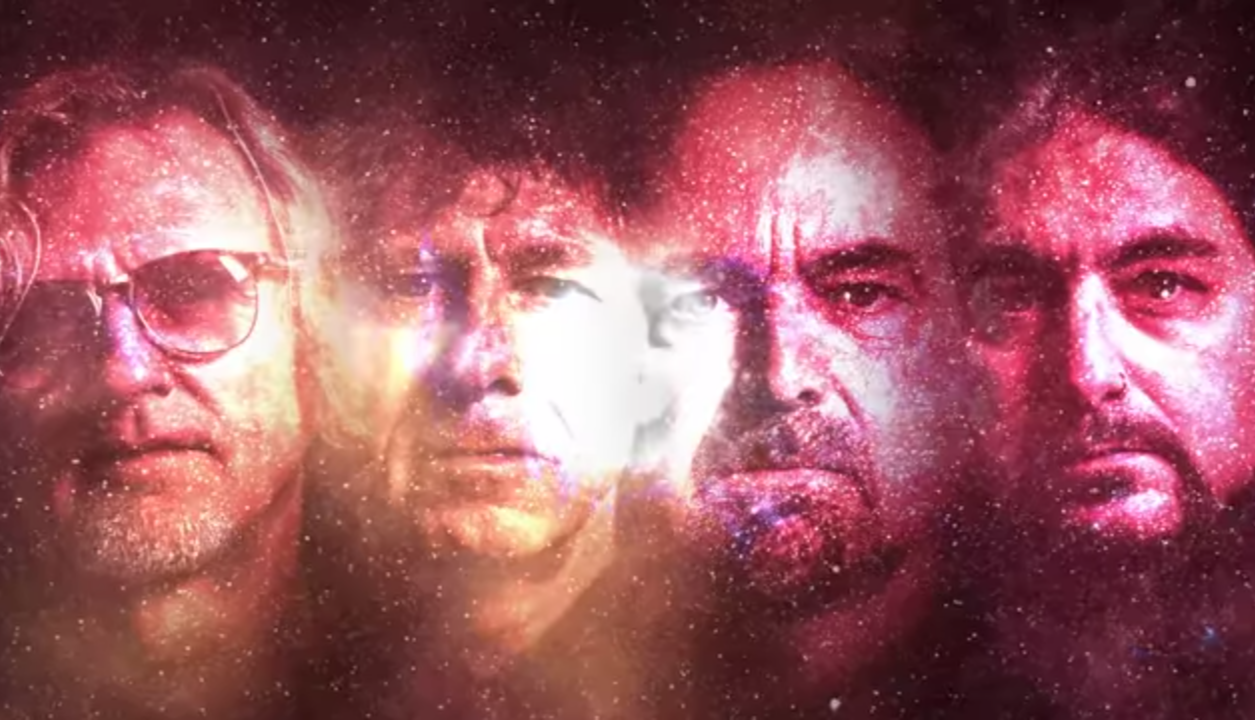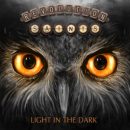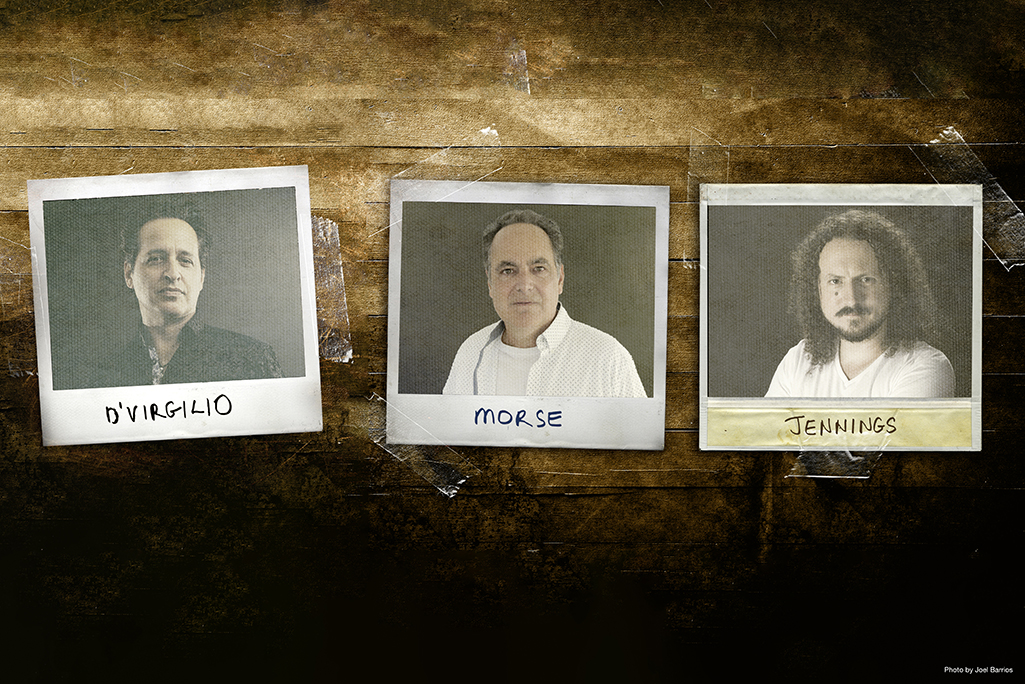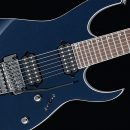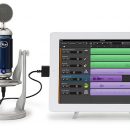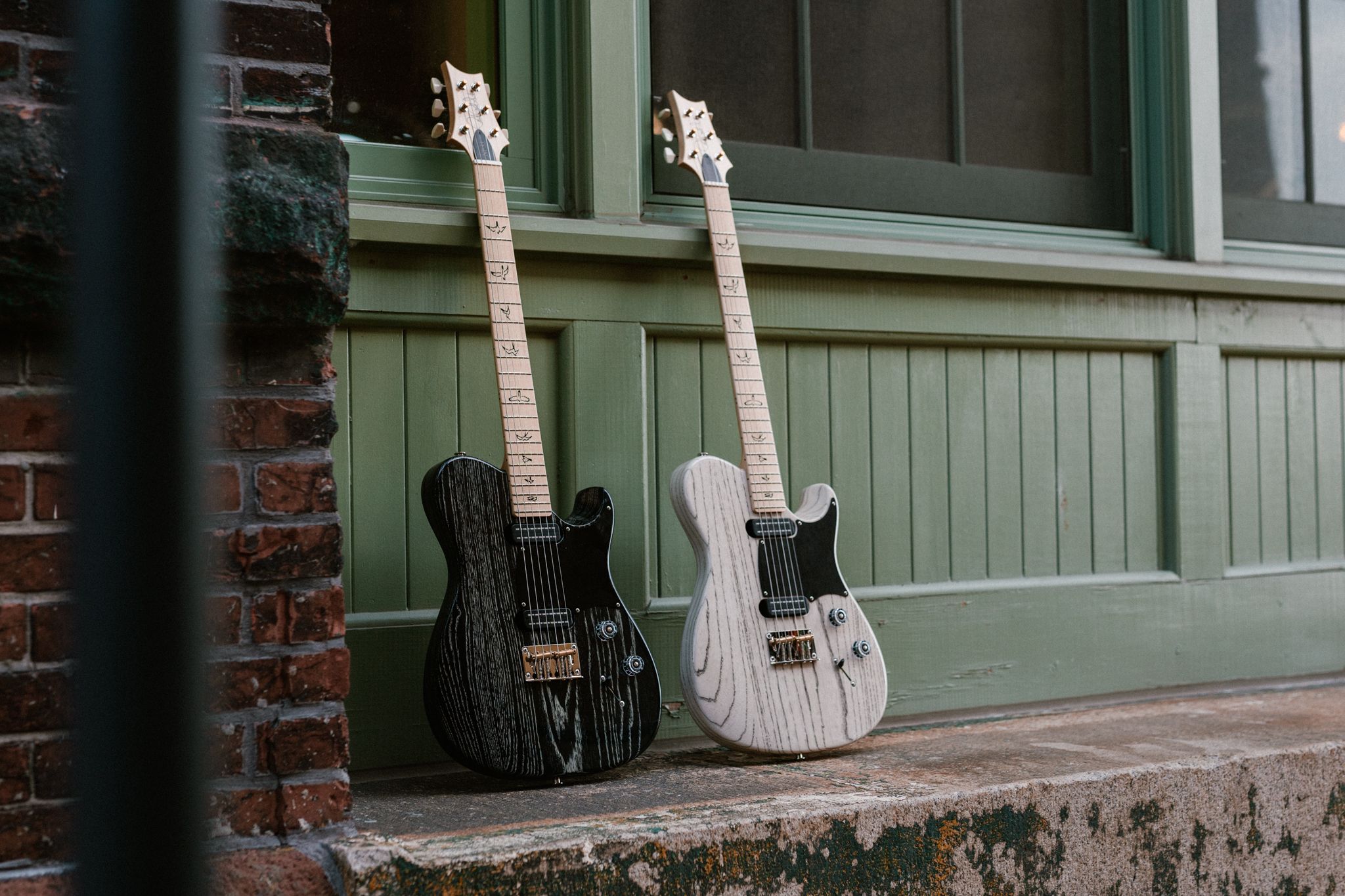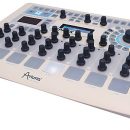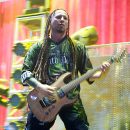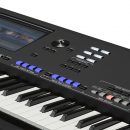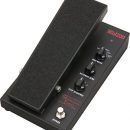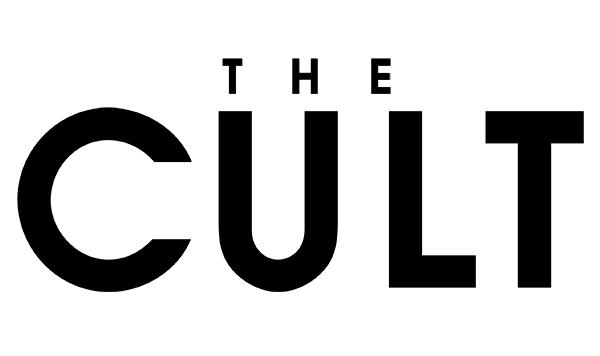 In recognition of the forthcoming re-issue of THE CULT's multi-platinum-selling Sonic Temple album on Beggars Banquet Records, the British group that's led by Ian Astbury and guitarist Billy Duffy will embark on select dates in North America and the UK starting May 2 in Houston, TX (itinerary below). Tickets are on sale now for the "A Sonic Temple" tour and available here. Meanwhile, the band expects to announce another block of dates very soon for 2019/2020.
In recognition of the forthcoming re-issue of THE CULT's multi-platinum-selling Sonic Temple album on Beggars Banquet Records, the British group that's led by Ian Astbury and guitarist Billy Duffy will embark on select dates in North America and the UK starting May 2 in Houston, TX (itinerary below). Tickets are on sale now for the "A Sonic Temple" tour and available here. Meanwhile, the band expects to announce another block of dates very soon for 2019/2020.
The set list will draw from THE CULT's 10 studio albums with the centerpiece being a super set that's focused on the core songs from Sonic Temple; some of these songs have not been performed since the album (their fourth) was originally released in 1989. Sonic Temple--a pivotal, game-changing album that brought together the alternative and hard rock audiences--will be reissued in a 30th anniversary edition by Beggars Banquet Records (exact release date TBA). Sonic Temple features the singles "Fire Woman," "Edie (Ciao Baby)," "Sweet Soul Sister" and "Sun King." Read a new Q&A with Astbury and Duffy below.
Each show will be a gathering and celebration for Cult fans--an opportunity to come together for one night--an event that will be memorable for all who attend. In Los Angeles only, where Astbury and Duffy live, the band has created something extra special. The Greek Theatre will become "A Sonic Temple" on June 15 with a diverse multi-act bill that has roots in THE CULT lead singer Ian Astbury's pioneering pre-Lollapalooza festival "A Gathering of the Tribes" (1990). Prayers, Zola Jesus and Vowws will join headliners THE CULT.
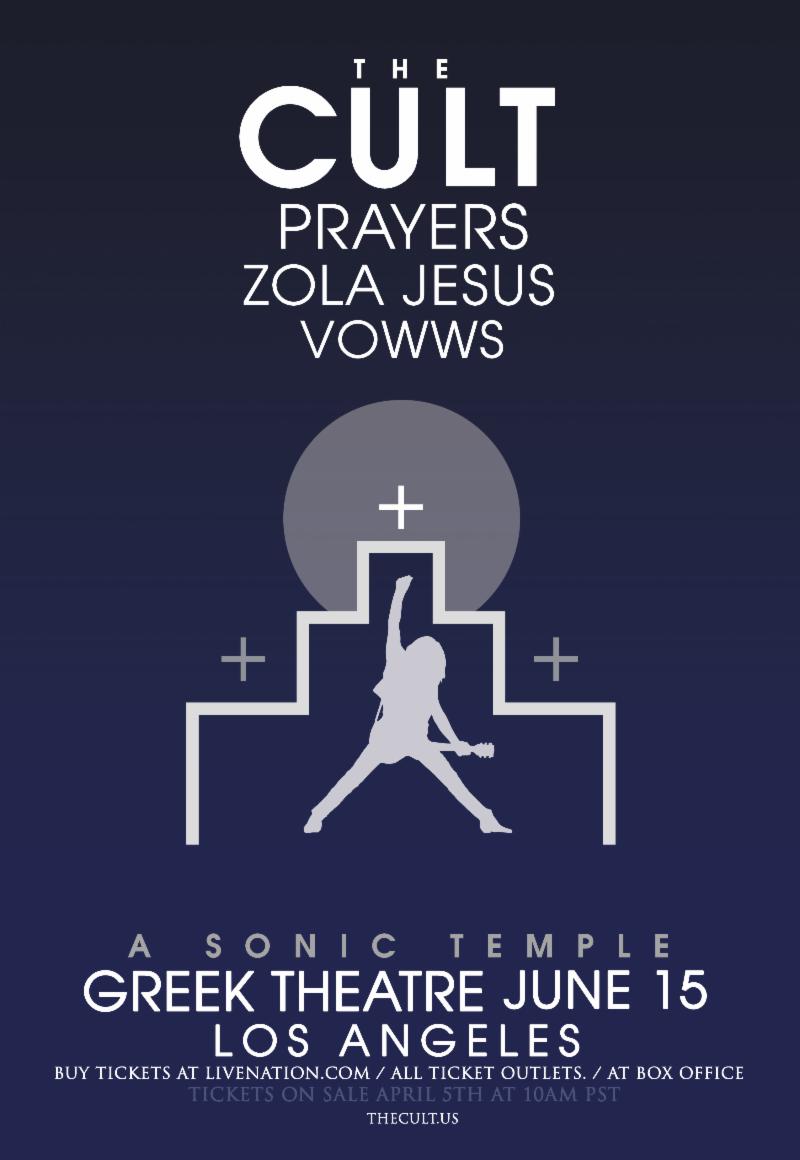
Q&A WITH IAN ASTBURY AND BILLY DUFFY (April 2019):
IAN ASTBURY:
What was your mindset as a musician and as person when you began to write the songs for the album?
IA: We decamped from London to Los Angeles for a break in early '88, 87 had been particularly intense with The Electric album being released and touring. London had become difficult to live in for various reasons even walking the streets was challenging at times, I was receiving unwelcome attention from the way I looked I received a lot of unwanted attention. L.A. was a mystical paradise. I was drawn by myths that surrounded the canyons and hills of the city and the vibrant music film and art scene. Eventually we began to feel more comfortable during this extended stay and soon fell into writing songs. We then went to Vancouver to spend time with Bob Rock in pre-production. He was the anchor and had a vision of what the band should sound like. I was travelling further inward. My instinct was to create a cinematic album that contained visceral landscapes, nuanced and textured. We certainly felt it was time for the next evolutionary step.
'Sonic Temple' is one of the few albums that brought together the divergent hard rock and alternative audiences. Can you reflect on this and how the band navigated this terrain?
IA: We certainly didn't want to repeat ourselves. We wanted to retain our core DNA as we went deeper into psych and hard rock influences. It was a complete immersion for me into art, film, music, poetry and literature, weaving those influences into what was to become Sonic Temple. The band was becoming more popular. We were in uncharted waters. Most of the bands we had come up with had split up or fallen off. We were accelerating. There was no real time to breathe. We were forming new allegiances and breaking the glass ceiling of "the indie outsider."
How did 'Sonic Temple' change the band as you found success all over the world and toured relentlessly?
IA: The lifestyle pressures were intense before 'Sonic Temple.' In 1987 we had already completed a sold-out tour of the UK, immediately jumping into a tour opening for Billy Idol that was total chaos. We then opened for Iggy Pop (who later appeared as a guest vocalist on the song NYC) and David Bowie in Europe and then went on a headline tour of the US and Canada with GNR opening. That was also chaotic as one could imagine. Expectations were high and we had a lot riding on ST being an artistic and commercial success. We blazed the trail in some way. Later that year we had to cancel a tour of Japan due to nervous exhaustion but were given the go ahead to play Wembley Arena and Brixton Academy needless to mention an infamous Australian tour. It's impossible to quantify the experience unless you've lived through it. Several critics made judgments during that time without any real experience or insight into what it was like to be that young inside of a whirlwind. The subsequent touring for 'Sonic Temple' picked up where we left off in '87. Our lives where irreversibly changed as we began to soar the platinum skies.
In some ways the success of the biggest songs and videos from the album dwarfed other songs from the album that were illuminating so many subjects and the chaos of the times. What are your thoughts about this?
IA: Certainly, MTV amplified the commercial success of, say, Fire Woman but for me the heart of the album was really in songs like Edie, NYC and American Horse and Soul Asylum. We pushed to create tension drama and vibrant layers I was trying to create a soundtrack for an imagined film.
As you tour this year with 'Sonic Temple' as the centerpiece of your set, what do you want audiences to take away from it?
IA: I hope people coming to the concerts take away a sense of love and optimism, connection and communion.
BILLY DUFFY:
'Sonic Temple' is one of the few albums that brought together the divergent hard rock and alternative audiences. Can you reflect on this and how the band navigated this terrain?
BD: I believe in retrospect the album was basically the culmination of all the work the band had put in since our inception in 1983 as the Death Cult. It was an evolution of the partnership as writers and performers of Ian and me. At the time in that decade we basically put one foot after the other as you do when starting out and followed our gut instincts as how best to develop as a team and always look to move forward.
In simpler terms maybe we tried specifically on ST to take elements of our sound from the Love album and from Electric--both sonically quite different--and make a cohesive third album having the best of both all the while still moving forward and being of our time.
I'd agree that perhaps it was one of the few albums that did indeed marry hard and indie rock and that was simply how things evolved with the Cult--not really part of any master plan. However, we have always tried to avoid being pigeonholed since the very early days so it's just how we operated.
I think the greater shock to the Cult's early fan base was from Love to Electric, so by ST we felt we had established ourselves as more a rock n roll band than an indie one, even though of course that was our background.
What was your mindset when writing the music for the album?
BD: I think as always we were reflecting as honestly as we could our lives and environment at that time. I do feel we did manage to put together some great songs, which can be a challenge when your life is mostly spent on the road. Personally I was proud to have gotten the band so far and wanted to enjoy and experience making a truly full-sounding rock album like the ones that had so inspired me back in Manchester in the early 70s.
How did Sonic Temple change the band as you found success all over the world and toured relentlessly?
BD: I think we had gotten used to touring with Electric a fair bit by then but did embark on a serious year-long tour for ST. I'm not exactly sure we felt successful, but it was reassuring for me to see the band get to another level of recognition. The momentum was always forward and upward. We never looked back too much and never second guessed ourselves. We did have to grow into a 'arena' band and present a somewhat larger than life stage show but that was what was required of us at the time and we did it as best we could. And in the end, I had a lot of fun doing it.
As you tour this year with Sonic Temple as the centerpiece of your set, what do you want audiences to take away from it?
BD: I think as time has passed our music has endured fairly well. I'd like fans to not only allow themselves a little indulgence into maybe simpler happier times of the late 80s for a few hours at a ST 19 show but also be happy that the music is now really their possession, not ours, and to do with it what they will. For the most part, once an album is done, Ian and I never look back too much and let it go out there with few regrets. Let them celebrate those good times back then but not dwell in them and even more so look forward to new and different experiences in the future.
THE CULT 2019 Initial Tour Dates:
THU 5/2
Houston, TX
House of Blues
FRI 5/3
New Orleans, LA
The Fillmore
SAT 5/4
Jacksonville, FL
Welcome To Rockville Festival
THU 5/9
Dallas, TX
House of Blues
FRI 5/10
Atlanta, GA
Tabernacle
SAT 5/11
Marston, NC (Charlotte)
Epicenter Festival
SUN 5/17
Grand Rapids, MI
20 Monroe Live
MON 5/18
Columbus, OH
Sonic Temple Festival
TUE 5/19
Chicago, IL
Chicago Open Air Festival
WED 5/25
Catton, United Kingdom
Bearded Theory Festival
THU 5/26
Gateshead, United Kingdom
The Sage
FRI 5/28
St. John's, NL Canada
Mile One Center
SAT 5/30
Moncton, NB Canada
Casino New Brunswick
SUN 6/1
Montreal, QC Canada
MTELUS
MON 6/2
Rama, ON Canada
Casino Rama
TUE 6/5
Winnipeg, MB Canada
Club Regent Casino - Event Centre
WED 6/7
Enoch, AB Canada
River Cree Resort & Casino
THU 6/9
Vancouver, BC
Canada Vogue Theatre
FRI 6/10
Seattle, WA
Moore Theatre
SAT 6/12
San Francisco, CA
The Regency Ballroom
SUN 6/14
Reno, NV
Grand Sierra Resort Casino - Grand Theatre
MON 6/15
Los Angeles, CA
Greek Theatre
SAT 6/22
Vitoria, Spain
Azkena Rock Festival
FRI 9/13
San Diego, CA
Kaaboo Festival
Visit THE CULT's social platforms for all tour dates, news and updates:

